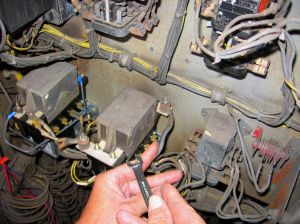The Electrical Trades Union (ETU) has commissioned researchers from the WRC to prepare a report on the work, wages and living standards of electrical apprentices as part of Fair Work Australia's review of modern awards.
Electrical trades are one of Australia's key skills shortages but only about 60 per cent of people who commence training will complete it, due in part to the deteriorating financial position of apprenticeships.
"Back in the 1950s the typical apprentice was around 15 years of age and lived with their parents. Historically, it was thought that apprentices should be paid as a percentage of a qualified tradesperson's wage to compensate for their lower productivity and the time needed for on the job training," Hanna Schutz, a Research Analyst from the Workplace Research Centre, said.
"Today's modern apprentice electrician has most likely completed high school with a background in mathematics and sciences, and is at least 18 years old. More than a quarter of those commencing training in a trade are 25 or older. Apprentices are now more likely to be adults with families of their own, rather than dependent children.
The first year wage of as little as $225 per week means that apprentices are dependent on their parents' generosity to achieve even an austere standard of living. For instance, they cannot typically afford to own or run a car, can only afford generic brands, and must stay healthy and have good teeth. Ill health or an unexpectedly large bill is likely to tip anyone living at this low cost standard into debt.
School leavers who engage directly in paid work and are paid a junior wage will typically earn $40 to $70 more than a first year apprentice. According to the WRC, this is a key factor in the skills shortage, wherein 12.5 percent of job vacancies for electricians remain unfilled in the Sydney area.
"Beginning an apprenticeship is not only initially much less attractive than other pathways, but completing training requires apprentices to endure sustained period of relative deprivation before rewards become comparable with those of their peers," Professor John Buchanan, Director of the WRC and a co-author of the report said.
"Our research shows that relative earnings and lower standard of living are likely to lead to continuing difficulties in recruiting apprentices and to poor rates of completion."








-160x160-state_article-rel-cat.png)



-160x160-state_article-rel-cat.png)



